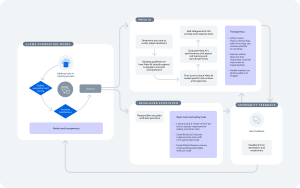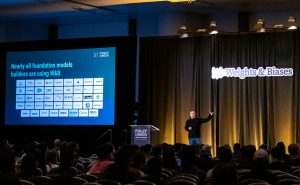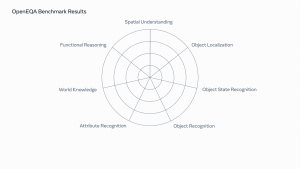This post was originally published on the Georgia Tech Blog.
MENLO PARK — In an ambitious effort to combat climate change, Georgia Tech and Meta have joined forces to develop a massive open-source dataset designed to advance AI-driven solutions for carbon capture. This initiative, dubbed OpenDAC, aims to accelerate the development of direct air capture (DAC) technology while reducing costs, providing a critical tool in the global fight against excessive carbon emissions.
DAC technology, which removes carbon dioxide directly from the atmosphere, has immense potential to help mitigate climate impacts. However, the challenge lies in designing systems that are optimized for the specific environmental conditions of each location, such as temperature, humidity, and airflow. A DAC setup in Texas, for instance, would differ significantly from one in Iceland. Each system requires highly customized materials that can efficiently capture carbon in those unique conditions.
To address this, researchers from Georgia Tech and Meta have created a vast database that allows for faster, more precise design and implementation of DAC technologies. The dataset, powered by nearly 40 million quantum mechanics calculations, enables the team’s AI models to simulate chemical reactions much more rapidly than conventional methods. This development could drastically speed up the process of discovering new materials suitable for DAC, potentially advancing climate solutions that are urgently needed.
The team’s findings were published in ACS Central Science, a journal of the American Chemical Society.
Building a Foundation for Direct Air Capture Innovation
“Direct air capture requires tailored solutions for different environments, and the challenge is identifying materials that can efficiently capture carbon dioxide under those specific conditions,” explained Andrew J. Medford, associate professor at Georgia Tech’s School of Chemical and Biomolecular Engineering (ChBE) and a lead author of the study. “Our goal was to create a database and set of tools that would help engineers pinpoint the right materials to synthesize and test.”
The result is a comprehensive dataset containing reaction data for 8,400 different materials, making it the largest of its kind. This extensive collection provides researchers with valuable insights into the interaction between metal-organic frameworks (MOFs)—a promising class of materials for DAC—and carbon dioxide, allowing for faster material discovery.
A Collaborative Effort to Tackle Climate Change
Meta’s Fundamental AI Research (FAIR) team initially sought ways to leverage machine learning for climate change solutions and identified DAC as a key area of opportunity. They partnered with Georgia Tech due to the university’s expertise in materials chemistry and carbon capture. Leading the effort on Georgia Tech’s side were David Sholl, a renowned expert in MOFs, and Andrew Medford, whose research focuses on machine learning applications in chemistry.
Together, the teams worked to create a dataset that would allow AI models to predict how MOFs interact with carbon dioxide under different environmental conditions. Powered by over 400 million CPU hours of quantum chemistry computations, the models proved to be as accurate as traditional chemistry simulations but far more efficient.
“The AI models we developed offer a faster, more scalable way to identify materials that could revolutionize direct air capture,” said Anuroop Sriram, research engineering lead at FAIR and the paper’s first author. “This is something no other carbon capture database has achieved.”
The team identified 241 MOFs with high potential for carbon capture, advancing the search for materials that could be used in real-world DAC systems.
Looking Ahead: Scaling Carbon Capture Solutions
According to Matt Uyttendaele, director of Meta’s FAIR chemistry team, DAC technology must scale significantly to meet global climate goals. “We need to reach net-zero carbon emissions by 2050, but that won’t be possible without addressing past emissions and hard-to-decarbonize sectors like aviation and heavy industry. That’s where technologies like direct air capture come in.”
While DAC is still in its early stages, initiatives like OpenDAC are essential for driving innovation and making the technology more accessible and scalable. By providing the dataset, models, and algorithms as open-source tools, the team hopes to inspire further research and accelerate the development of negative-emission technologies.
“This work has the potential to make a significant contribution to our fight against climate change,” Medford added. “We’ve laid the groundwork for discovering better materials for DAC, and I believe this project could help bring those solutions to the forefront.”
Georgia Tech’s collaboration with Meta underscores the importance of cross-disciplinary and cross-industry partnerships in solving global challenges. With contributions from Georgia Tech ChBE graduate students and co-authors of the paper, Sihoon Choi, Logan Brabson, and Xiaohan Yu, the OpenDAC project represents a crucial step toward a more sustainable future.
Citation: A. Sriram et al, The Open DAC 2023 Dataset and Challenges for Sorbent Discovery in Direct Air Capture, ACS Central Science (2024).



















